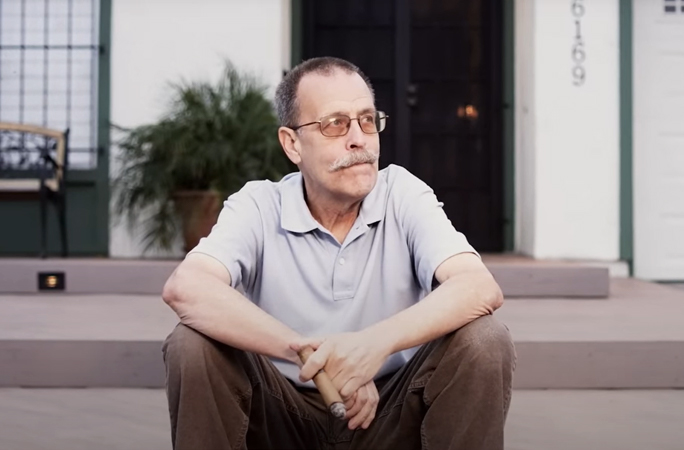Guinness World Records Ceases Recognition Of A Dangerous Record
The Guinness World Records is known for recognizing some of the most incredible feats, from the tallest man to the fastest marathon time. However, there is one record that the organization has stopped monitoring due to the inherent dangers associated with it. The Guinness world Records ceases recognition of a dangerous record, and it's the longest time spent awake.
Author:Raven NoirReviewer:Xander OddityApr 14, 202330 Shares679 Views

The Guinness World Records is known for recognizing some of the most incredible feats, from the tallest man to the fastest marathon time. However, there is one record that the organization has stopped monitoring due to the inherent dangers associated with it. The Guinness world Records ceases recognition of a dangerous record, and it's the longest time spent awake.
Guinness World Records Ceases Monitoring Record For Longest Time Awake Due To Dangers
The record on the longest time spent awake, which was most held by Robert McDonald, who managed to go without sleep for 453 hours and 40 minutes in 1986. Since then, the Guinness World Records has ceased recognizing the record, and for good reason.
In an interview with the BBC, Bruce McAllister, one of two students who attempted to break the record in 1963, revealed the dangers of staying awake for long periods of time.
“„We were idiots, you know young idiots.- Bruce McAllister
He explained that he and Randy Gardner had decided to embark on the challenge to see how the brain would react to sleep deprivation. Gardner managed to break the record with the help of a sleep researcher from Stanford University, but it came at a great cost.
Gardner experienced moodiness, concentration issues, short-term memory loss, paranoia, and hallucinations. Brain scans also later found that Gardner's brain had been "catnapping the entire time… parts of it would be asleep parts of it would be awake."
The Guinness World Records eventually stopped monitoring the record due to the inherent dangers associated with sleep deprivation. In a statement on their website, they explained that the decision was made after "considerable discussion with sleep specialists."
They added that they "would never encourage anyone to attempt to break this record due to the significant risks involved." Despite this, no one has managed to beat McDonald's record since 1986.
While it may be tempting to try and break a Guinness World Record, it is important to remember that some records are simply too dangerous to attempt. The Guinness World Records exists to celebrate achievements, not to put people's lives at risk. As McAllister stated in his interview with the BBC, "Plenty of others to try and beat, eh."
Conclusion
In conclusion, while the Guinness World Records recognizes some of the most incredible achievements, there are some records that are simply too dangerous to attempt.
The record for the longest time spent awake was last broken in 1986, and since then, the organization has stopped monitoring the record due to the significant risks involved. It is important to remember that the Guinness World Records exists to celebrate achievements, not to put people's lives at risk. As such, it is crucial that individuals do not attempt to break dangerous records.

Raven Noir
Author
Raven Noir is a captivating and enigmatic news reporter who unravels mysteries with a relentless pursuit of truth. Possessing an insatiable curiosity and an astute mind, Raven delves into the depths of complex stories, unearthing secrets that lie beneath the surface. With a masterful grasp of deduction and observation, Raven stands as a beacon of fearless investigation.
In the realm of journalism, Raven is known for his enigmatic presence, drawing people in with an aura of intrigue. Driven by an unwavering passion for unveiling the truth, Raven Noir continues to shed light on the darkest corners of society. Through captivating storytelling and unwavering determination, he challenges conventions and uncovers enigmatic secrets that lie just beyond the surface.

Xander Oddity
Reviewer
Xander Oddity, an eccentric and intrepid news reporter, is a master of unearthing the strange and bizarre. With an insatiable curiosity for the unconventional, Xander ventures into the depths of the unknown, fearlessly pursuing stories that defy conventional explanation. Armed with a vast reservoir of knowledge and experience in the realm of conspiracies, Xander is a seasoned investigator of the extraordinary.
Throughout his illustrious career, Xander has built a reputation for delving into the shadows of secrecy and unraveling the enigmatic. With an unyielding determination and an unwavering belief in the power of the bizarre, Xander strives to shed light on the unexplained and challenge the boundaries of conventional wisdom. In his pursuit of the truth, Xander continues to inspire others to question the world around them and embrace the unexpected.
Latest Articles
Popular Articles
